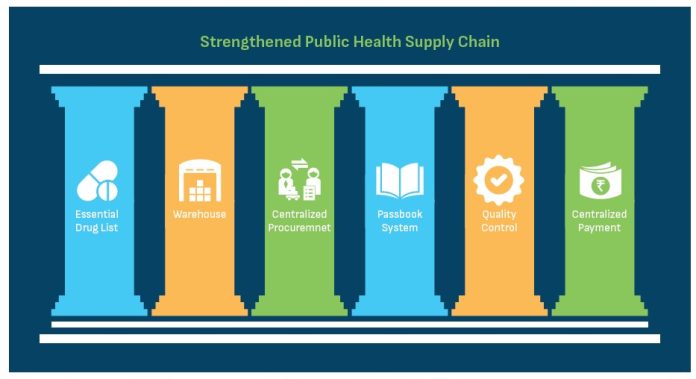The healthcare supply chain in India has faced significant strain in recent years, especially during the COVID-19 pandemic. Timely access to medicines, medical equipment, and vaccines is essential to maintain public health. However, India’s healthcare supply chain is plagued by inefficiencies, lack of infrastructure, and bottlenecks, particularly in rural areas.
A resilient and robust supply chain is crucial for ensuring that patients receive life-saving treatments on time. In the wake of the pandemic, improving India’s healthcare supply chain has become a key priority for both the government and the private sector.
Challenges in the Healthcare Supply Chain
- Infrastructure Gaps: While India’s healthcare infrastructure has improved significantly in urban centers, rural areas still lack access to basic health supplies, resulting in delays in deliveries and shortages.
- Regulatory Hurdles: India’s regulatory framework for healthcare supplies is complex, often causing delays in approval processes for new medicines and equipment. The lack of clear logistics standards can further exacerbate these challenges.
- Logistical Inefficiencies: Inefficient transportation and cold storage infrastructure make it difficult to ensure that temperature-sensitive medicines (such as vaccines) reach rural areas safely. Poor road connectivity and inadequate warehouses also contribute to delays and spoilage of medical goods.
Solutions to Strengthen Healthcare Supply Chains
- Improved Logistics and Distribution: Investing in modern logistics technologies, such as real-time tracking systems and cold chain storage solutions, can help overcome barriers in the healthcare supply chain. This would ensure that medicines and medical equipment reach their destination safely and on time.
- Collaboration with Private Sector: Public-private partnerships (PPPs) have proven to be highly effective in improving healthcare infrastructure. Organizations like FICCI Health Services are advocating for greater collaboration between the government and private logistics companies to streamline supply chains and ensure timely access to critical supplies.
- Digital Health Platforms: Leveraging digital health technologies can provide real-time data on the availability and distribution of essential medicines and equipment. This can improve forecasting, prevent shortages, and enable more efficient management of stockpiles.
Building a Resilient Supply Chain
Strengthening India’s healthcare supply chain will require long-term investment, improved infrastructure, and ongoing collaboration between the government, industry bodies, and healthcare providers. With continued efforts from organizations like FICCI Health Services Committee and CII Healthcare Council, India is working towards a more robust and efficient healthcare supply chain that can handle future challenges and ensure that critical healthcare products are always available when needed.











